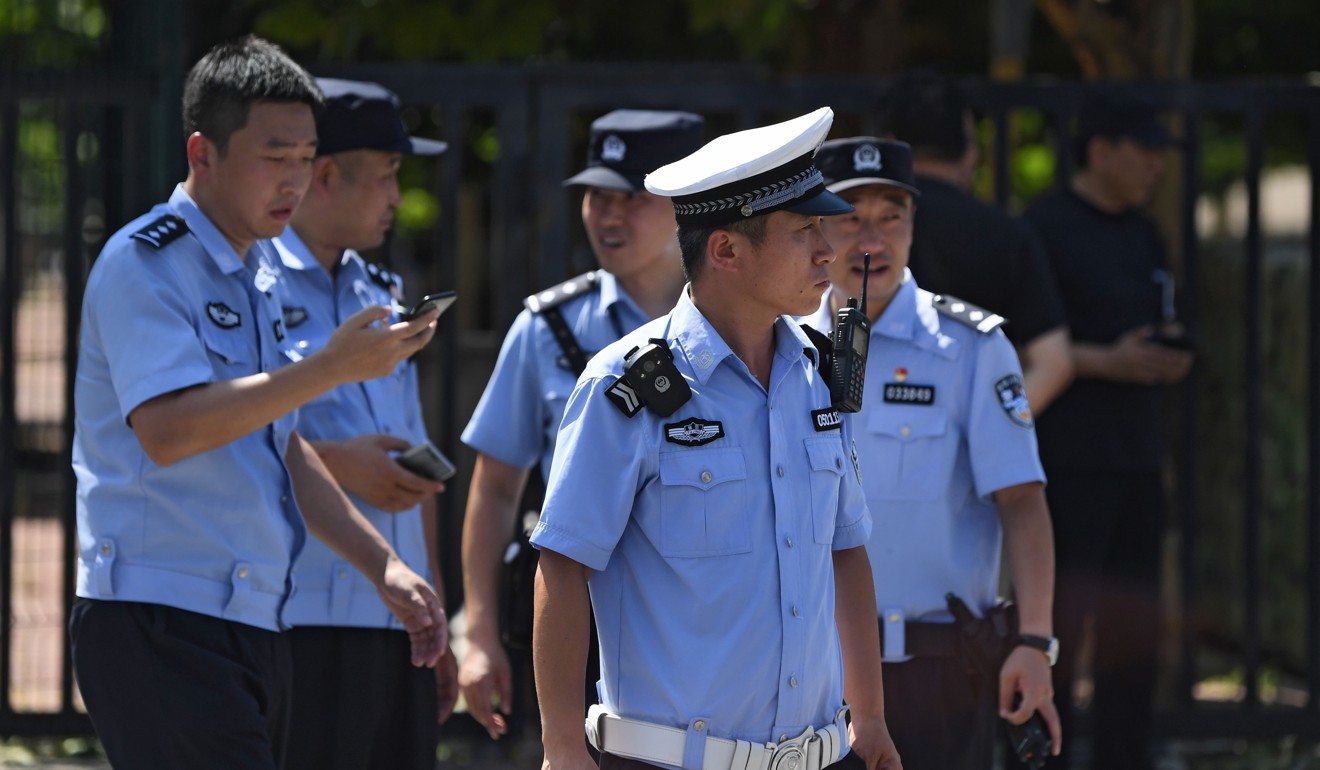
Xi Jinping tells judiciary and law enforcement agencies to ‘scrape away the poison’ amid investigation into missing documents for US$56 billion coal mine
- Warning comes amid investigation into missing Supreme People’s Court documents relating to ownership dispute over US$56 billion coal mine
- Officials must ‘guard against slack law enforcement, miscarriage of justice, breaking the law, while enforcing the law and judicial corruption’
Chinese President Xi Jinping has told law enforcement and judicial agencies that they must police themselves to eradicate corruption and prevent the abuse of power, as a top-level team continues to investigate the disappearance of legal documents from the country’s top court.
Speaking on Wednesday at a high-level annual meeting on political and legal affairs, Xi told officials they must “resolutely guard against slack law enforcement, miscarriage of justice, breaking the law while enforcing the law and judicial corruption”, Xinhua reported.
Law enforcement and judicial agencies must “turn the blade towards themselves, scrape the poison off their bones and resolutely eliminate the black sheep”, he said.
Chinese leaders take ‘unprecedented’ steps to clean up mystery of vanished documents
In the lexicon of the ruling Communist Party, China’s political and legal affairs apparatus – which includes the police, secret police, courts and prosecutors – is often referred to as the “knife handle”, while the army is known as the “gun barrel”. Both are vital to the security of the regime.

Xi’s attendance at the conference was his first since 2014, when he also vowed to eliminate corruption and weed out the “black sheep” from law enforcement agencies and the judiciary.
Under his sweeping anti-corruption campaign a slew of senior officials, including former security tsar Zhou Yongkang, former deputy police chief Li Dongsheng and former justice minister Wu Aiying have been purged from the system.
Xi’s latest warning came after the party’s Central Political and Legal Affairs Commission last week launched a rare joint investigation with the anti-corruption watchdog into the mysterious disappearance of a series of legal documents from the Supreme People’s Court (SPC).
China’s top prosecutor ‘confident’ of finding out what happened to missing papers
The documents, which went missing in 2016, related to a long-running contract dispute between a private company and a state-owned enterprise over the ownership of a coal mine in northwest China’s Shaanxi province, which reportedly has reserves worth 380 billion yuan (US$56.15 billion).
The matter was brought to the public’s attention last month by former television host Cui Yongyuan, whose allegations sparked last year’s tax evasion scandal involving Chinese actress Fan Bingbing.
While the top court initially denied losing the documents, it quickly backtracked and launched an internal investigation amid a public outcry over injustice in the system.
In his speech, Xi vowed to uphold the party’s “absolute leadership” over political and legal affairs, and urged officials to push for deeper integration of new technologies such as big data and artificial intelligence in their work.
China’s top court forced to admit losing documents
The meeting was also attended by the head of the Central Political and Legal Affairs Commission Guo Shengkun, SPC Chief Justice Zhou Qiang and the nation’s top prosecutor, Zhang Jun.
Later the same day, Zhang held a meeting with his colleagues at the top prosecutor’s office where they agreed to step up internal political inspection, Xinhua reported.

